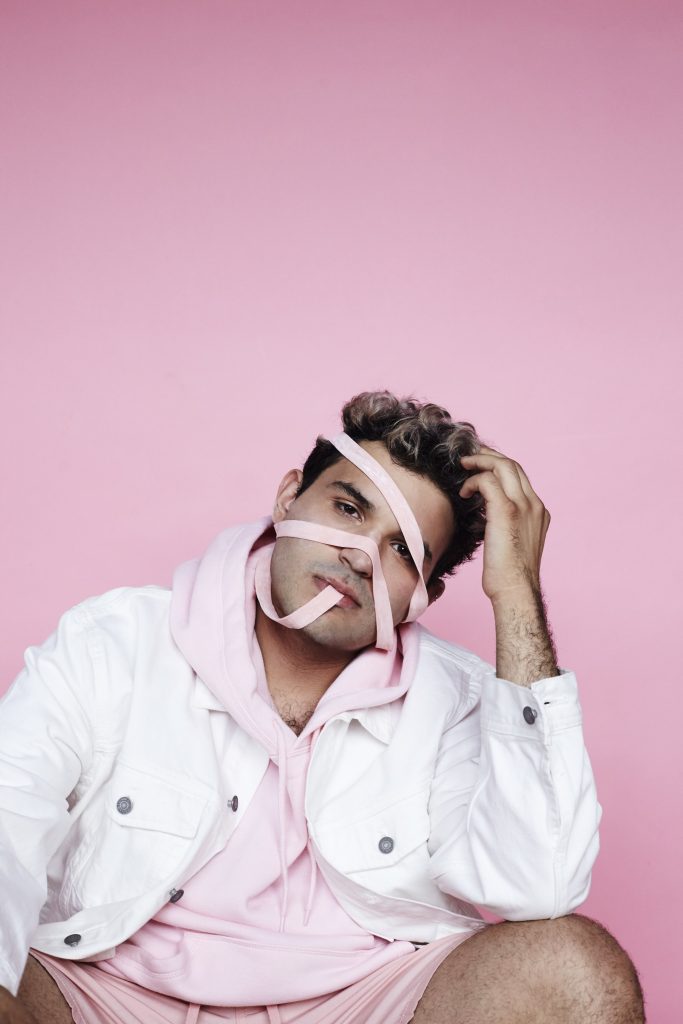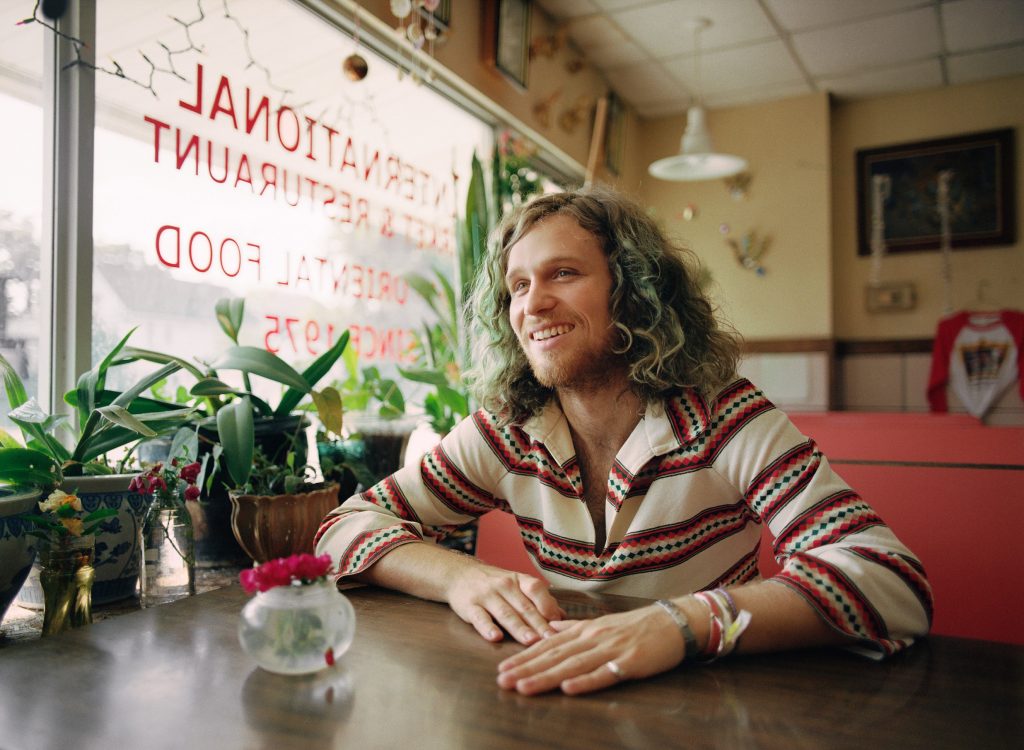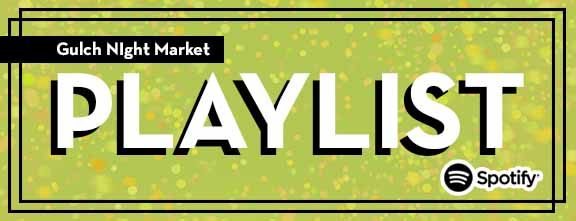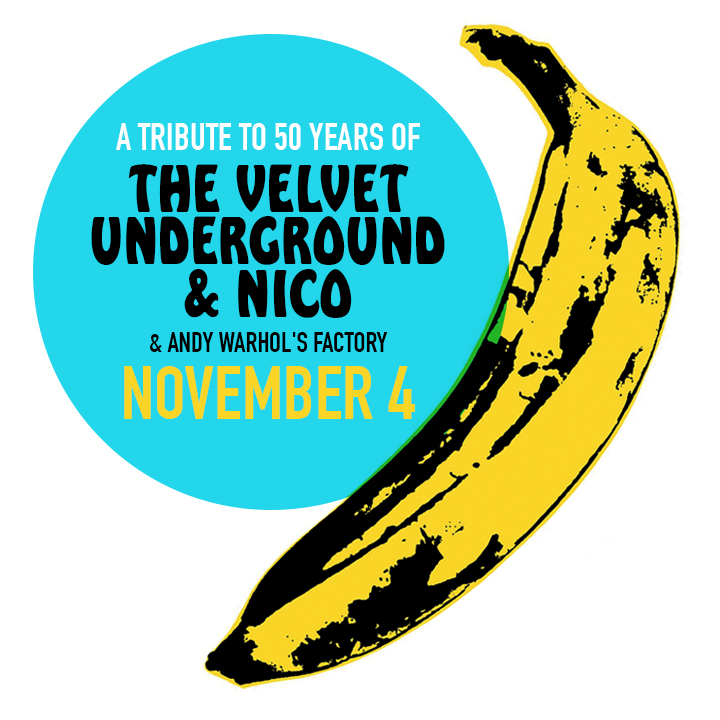
This year marks the fiftieth anniversary of The Velvet Underground and Nico’s landmark debut, The Velvet Underground & Nico. Though only 30,000 copies were sold upon its release, the album is now universally lauded and considered one of the greatest rock albums of all time by everyone from Rolling Stone to Pitchfork to your average record store snob.
The album has its roots in Andy Warhol’s Exploding Plastic Inevitable multimedia installations and The Factory studio parties, both of which the Velvets would regularly play. The parties planted the seed for the ’60s New York music scene, and by 1966, Warhol was on board to “produce” a debut for the Velvet Underground.
For somewhere between $1,500 and $3,000, they created a record that was sonically and lyrically groundbreaking. Part of that can (kind of) be attributed to Warhol’s hands-off “production” style: he rented out Scepter Studios in New York and let the band have full creative freedom to create a fuzzy, raw masterpiece that came to define cool. Yet, despite the droney, avant-garde nature of tracks like “Heroin” and “Black Angel’s Death Song,” the The Velvet Underground & Nico is still accessible, which is one of the many reasons it’s still relevant fifty years later.
Today, The Factory’s influence echoes throughout Nashville’s tight-knit community of artists, musicians, writers, and scenesters. Maybe that’s why it made sense for NATIVE and The Basement East to ask some local artists and musicians to honor the fiftieth anniversary of The Velvet Underground & Nico with a tribute show this Saturday, November 4. We spoke with some of the Nashville artists playing the show to hear their thoughts on the album.
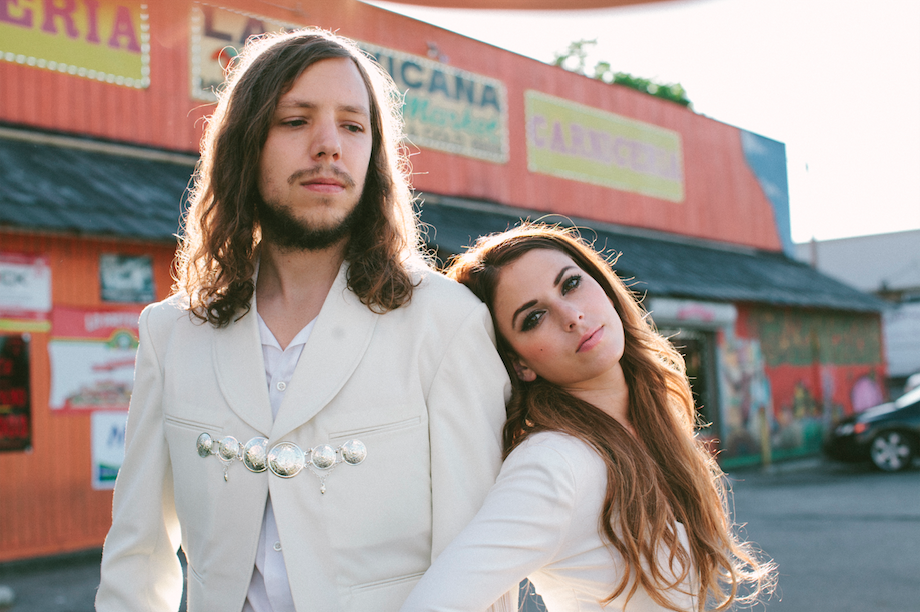
When was the first time you heard The Velvet Underground & Nico?
Damien Bone of The Weeks: I was like fifteen or fourteen. One of my friends played me Loaded, and then I listened to the whole thing over and over again for a week.
We wore out VU every morning. We didn’t have cable, so that’s just like, that was what we woke up to.
Tyler James of Escondido : I was a meter reader after my senior year of high school in Iowa, and no one was listening to that kind of music. I remember putting it on in the little truck I had from the city, and I just listened to it the whole summer nonstop. I totally had no idea that it existed this entire time, and it took me that long to hear it.
Liz Cooper: I remember being at my parents’ house in my old room and . . . listening and being like, “This is wild.” I think I had heard it at some point, where I didn’t appreciate it or I was just confused by what it was. But as I’ve gotten older and have listened to different kinds of stuff, I think I’ve appreciated it a lot more, kind of what it’s all about. The community of people and what they were doing is more so what the whole thing is about to me. The recordings aren’t the best recordings in the world by any means. I think I understood that.
Elise Davis: I’m pretty sure I was in high school, and one of the first songs I heard was “Sunday Morning.” I just remember immediately gravitating towards it, and I learned how to play “Pale Blue Eyes” because I started listening to them then. I was just instantly a fan.
Taylor Cole of Tayls: For me, the whole Velvet Underground & Nico experience stems from my high school girlfriend who I shared a lot of musical taste with. She was the first to tell me to listen to The Velvet Underground. I spent a lot of time sneaking away from class just to go smoke cigarettes in my car and listen to “Sweet Jane” and all kinds of stuff.
Suzie Chism of SUP: I feel like there are at least three songs on that album that have just been around my whole life. They’re kind of just omnipresent. I don’t know if I could pinpoint the first time I heard a sound off of it, but I definitely spent time listening to that record about two years ago in-depth for the first time.
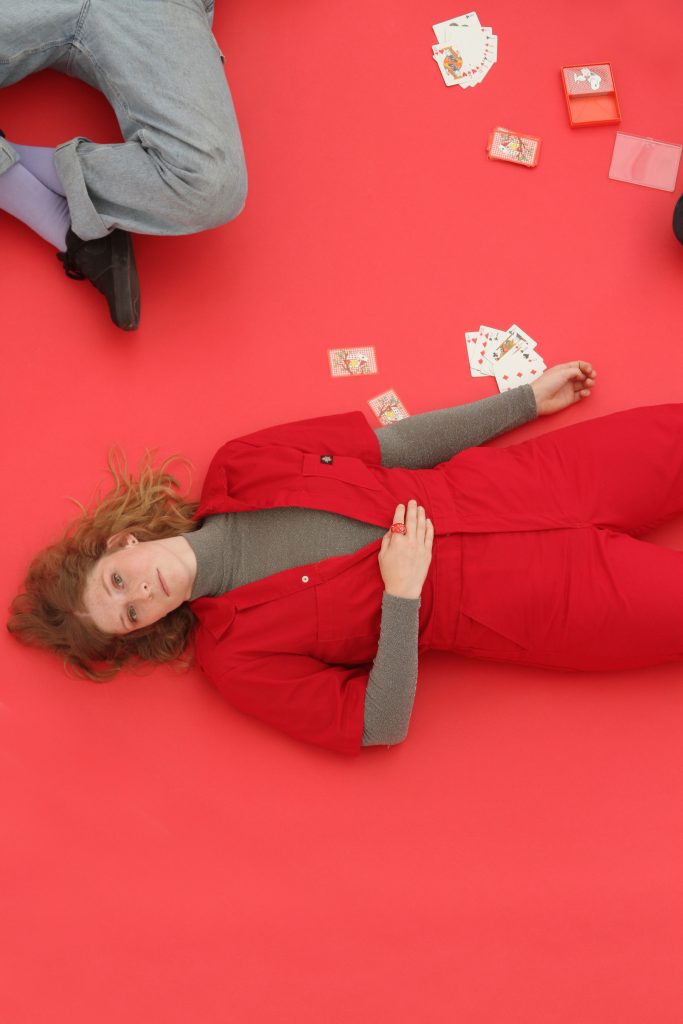
What is your favorite track on The Velvet Underground & Nico?
Damien Bone: I’d say “Femme Fatale.” I was always more Nico over The Underground. Their catalog is better, but Nico’s Chelsea Girl is one of my favorite records ever. I was a little bit partial toward “All Tomorrow’s Parties” and “Femme Fatale.”
Tyler James: “Sunday Morning” was what I was drawn to when I was younger. {I was] drawn to more of the pop sensibilities of that song. But “Heroin” was one of my favorites for the longest time too. It not only had lyrics that were very controversial for the time, but music that just didn’t make sense for that time either. The song “Heroin” had no tempo, started out really slow, got really fast, went faster, slower, faster, slower. I think when you’re starting up music, especially as a young musician, you don’t even think those are possibilities. The ones we’re singing [at the show] actually have interesting verses and dark verses; they each have a really beautiful melody as well.
Liz Cooper: “Run, Run, Run.”
Elise Davis: With them, I don’t necessarily even have a favorite song. I just like a lot of different ones for different reasons. “Femme Fatale” or “Sunday Morning” or “Pale Blue Eyes” are the three songs I love the most by them.
Taylor Cole: I think “Sweet Jane” is my favorite Velvet Underground, but “Rock & Roll” [is close].
Suzie Chism: I’m a huge Lou Reed fan. I love that he kind of sings how he talks. So any song where he does that is my usually my favorite, but I really like “Sunday Morning.” That song is really pretty and it’s kind of different than the others
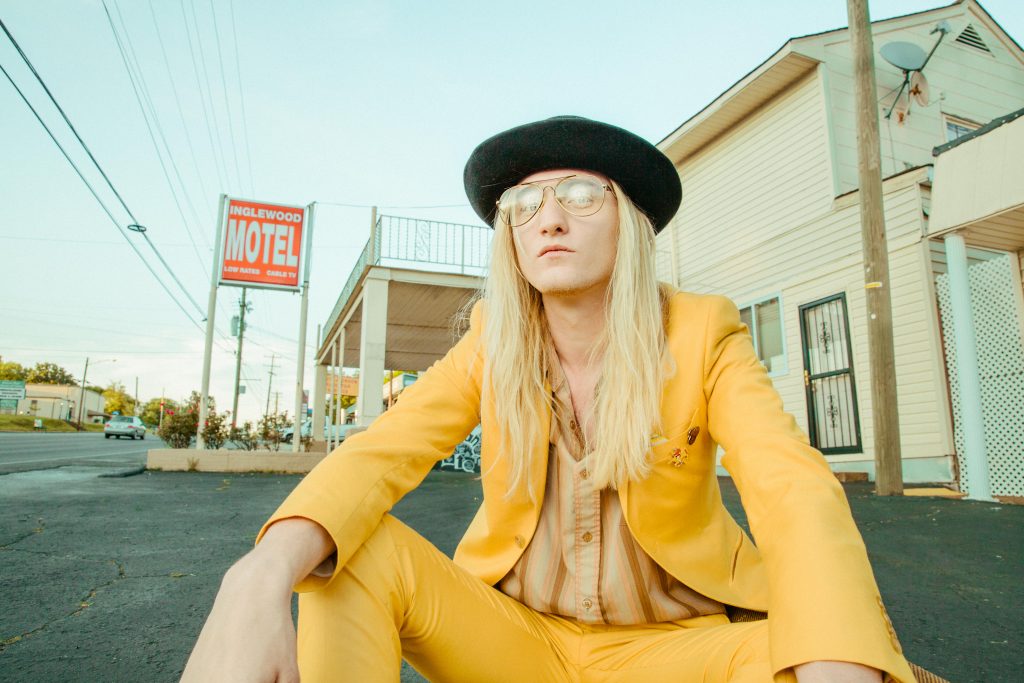
Why do you think this record is still relevant fifty years later? Do you see its influence in Nashville?
Damien Bone: I think it’s partially about how important they were in New York and the late ‘60s/early ‘70s rock scene with Warhol and The Factory. I think it’s not hard to see how important it was in the moment and what everybody that survived that scene did afterwards. The timelessness of it. I’ve never done heroin, but I know that when I listen to the Velvet Underground I don’t have to . . . because I can listen to The Velvet Underground.
Anything that drones owes to The Velvet Underground. Anything that goes on longer than it should owes to The Velvet Underground. Back in the day, if we were doing a really long drive, instead of saying it was an hour and a half or six hours away, we’d say, “We’re fourteen ‘Sister Rays’ away.” I think that the orchestration of everything was so amazing. It was sort of a druggy-filled spector, which I think a lot of bands in town are sort of pulling from—where it’s the droning and incorporating not just strings, but really harsh instruments like oboes and harsh woodwinds. There needs to be more of that in town . . . seemingly soft and delicate packages that have huge lyrical content and a lot of power.
Tyler James: They wrote about things that were a big part of culture but weren’t actually spoken about in public. I think from a production standpoint—because a lot of people in Nashville are record producers and we care a lot about the way records sound and make you feel—this Velvet Underground record in particular is the epitome of cool. When you think of how [to] make a guitar sound cool, you just think about this record. It’s brittle. It’s weird and dark and also something that anyone in the world can get into. I reference this record a lot for the sound of the drums, guitars, the weirdness, sloppiness, dirtiness, and brokenness of it. It was saying things that needed to be said far before it was socially acceptable to say it. Especially living in Nashville with a lot of pop-country stuff, it would be refreshing to have more bands sing about everyday life than just something that they think they’re supposed to sing.
Liz Cooper: I think the scene in Nashville reminds me of a Laurel Canyon or the Greenwich Village scene back in the ’50s and ’60s. Definitely I think that there’s a scene like Velvet Underground and Andy Warhol—it’s not what they were doing necessarily, but kind of in its own way I think that there’s something that reminds me of that here in Nashville today.
Elise Davis: Something I’ve been influenced by is how they were this ’60s experimental rock, but when they rock out it’s not super hardcore. It still has this kind of laid-back vibe about it. I think that is part of the approach that I tried to take with my last album.
Taylor Cole: Music transcends time in a cool way. At the time, it was a groundbreaking thing. You can look back on any groundbreaking record and see its relevancy hold up. I think that’s just like Paul Simon’s Graceland. A good record is a good record, and you can’t argue with it.
Suzie Chism: For a lot of the same reasons Andy Warhol strikes a chord, Lou Reed is kind of by the people and for the people. I think he started the cool kids club just so he wouldn’t be left out of it, and then he became the captain. I think a lot of us can relate to that. John Cale, too. There weren’t playing things that were really that difficult, but nobody else was doing it. They just kind of took an idea that anybody could do and branded it their own, and that’s really cool.
Purchase your tickets here.
Katie Schecter and Nick Bockrath, The Weeks, Escondido, Liz Cooper and the Stampede, Boy Bjorn, ELEL, Caleb Groh, Sun Seeker, Caitlin Rose, Elise Davis, Cale Tyson, Chrome Pony, Tayls, DEDSA, and Suzie Chism will perform Saturday, November 4 at The Basement East. Music begins at 10 p.m. and proceeds will go to The Next Door, Inc. for substance abuse

